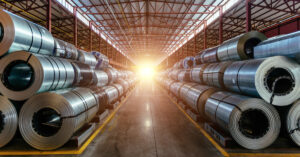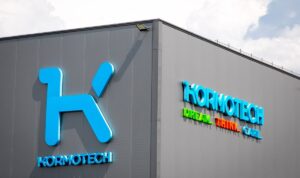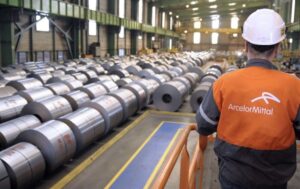
In January 2025, Express Insurance (Kyiv) collected insurance premiums in the amount of UAH 102.6 million, which is 71.9% more than in January 2024.
According to the insurer’s website, in January, it paid out more than UAH 34.4 million, which is 17% more than in the same period of 2024.
In particular, payments under hull insurance amounted to UAH 27 million (+5.3%), under MTPL – UAH 6.8 million (2.4 times more), payments under other insurance contracts – UAH 660 thousand.
“The increase in MTPL payments is a direct result of customer confidence in the company and the increase in the number of contracts concluded,” the statement said.
Express Insurance ALC was founded in 2008 and is part of the UkrAVTO group of companies. The company specializes in automobile insurance. The consistently high speed of claims settlement in the IC is ensured by optimal interaction with partner service stations.
Since April 2012, Express Insurance has been an associate member of the Motor Transport Insurance Bureau of Ukraine.

Prices for live cattle have risen sharply in Ukraine – by almost 20% over the past week, as of February 5, they increased from 64 to 74 UAH/kg and demand remains high, according to the Association of Milk Producers (AMP).
“The main driver is the increased demand from exporters. There are a number of factors, including the early Ramadan 2025 and the limited presence of live cattle from the EU due to outbreaks of foot-and-mouth disease,” analysts said.
Experts explained that usually the demand for live cattle fades in November and after the New Year’s lull is restored in March under the influence of growing export demand to Arab countries. However, this year Ramadan begins on February 28, so the demand for slaughter cattle from Lebanon and Jordan has increased since the first days of January.
The industry association predicts that amid a shortage of bulls of marketable condition, a rapid decline in raw milk prices and a lack of working capital for the sowing season, including due to delays in payment for raw materials, dairy farms may begin to actively reduce their livestock.

Apparent steel consumption (including total steel production, imports and exports) in the European Union in 2024, according to preliminary estimates by Eurofer, fell by 2.3% to 127 million tons.
This is worse than the association’s previously published expectations, according to which the decline could be 1.8%. In 2023, steel consumption in the EU fell by 5.8% to 130 million tons.
According to Eurofer’s report, in 2025, the recovery in apparent steel consumption will be slower than the association had previously predicted – the growth is expected to be 2.2% against 3.8% previously expected, provided that the situation in the industry develops positively and global tensions ease, which is currently unpredictable.
Consumption may reach about 130 million tons in 2025 and 133 million tons in 2026.
The overall dynamics of steel demand in the European region remains highly uncertain. No improvement in apparent steel consumption is expected until the first quarter of 2025, and consumption volumes will remain well below pre-pandemic levels, the association notes.
In the third quarter of 2024, apparent steel consumption continued to decline (-0.9% after -1.4% in the previous quarter) and amounted to 30.4 million tons.
Data for the fourth quarter will be published later. Real steel consumption in 2024, according to preliminary data, decreased by 3.8% in the EU, and in 2025 it is expected to recover moderately by 1%, while previously it was forecast to grow by only 0.6%. In 2026, real steel consumption could grow by another 1.9%.

Leading Ukrainian pet food manufacturer Kormotech has started construction of a new plant in Lithuania, in which it will invest EUR60 million, of which EUR40 million is provided by the European Bank for Reconstruction and Development (EBRD), according to Vitaliy Koval, Minister of Agrarian Policy and Food.
“I took part in the ceremony of laying the capsule for the expansion of the Kormotech plant. This is the largest Ukrainian producer of animal feed, which not only conquers the European market but also continues to scale thanks to its powerful entrepreneurial energy. Today, it is important for Ukrainian business to develop its presence in European markets without losing momentum,” he wrote on Telegram.
According to the minister, Kormotech is expanding its existing facilities in Lithuania, where it will create 200 new jobs to complement the team of 170 Ukrainian and Lithuanian specialists and the development of related industries. In addition, the company’s products in this country will have some Ukrainian components.
“One of our priorities in the Ministry of Agrarian Policy is to open new markets and expand existing ones. I am confident that Kormotech’s production facilities will enable other Ukrainian companies to enter the European market or increase their presence there,” Koval said and thanked the Lithuanian partners for supporting Ukrainian entrepreneurs who are becoming part of the European economy.
Kormotech is a global family-owned company with Ukrainian roots that has been producing cat and dog food under the Optimeal, Club 4 Paws, Woof! and Meow! brands since 2003. The company has production facilities in Ukraine and the EU, with a product range of over 650 items. Its focus on exports and geographical diversification helps it withstand the impact of Russia’s war against Ukraine.
In 2023, Kormotech’s turnover increased by 22.5% to $152 million from $124 million in 2022. The ratio of sales abroad and in Ukraine in tons is now 31% to 69%, respectively (in 2022 it was 28% to 72% in Ukraine).
Kormotech brands grew most dynamically in the markets of Romania (+35%), Poland (+11%) and Moldova (+11%).
Kormotech is a leader in Ukraine, one of the world’s top 50 pet food producers and one of the top 21 most dynamic pet food brands. The ultimate beneficiaries of Kormotech are Olena and Rostyslav Vovk.

Last year, Ukrainian media service MEGOGO maintained its investments in Ukrainian-language dubbing at UAH 38 million, having created 3,825 hours of content at its own studio and in cooperation with partners, the press service of the media service reports.
“The company continued to invest heavily in Ukrainian-language dubbing, allocating UAH 38 million for this purpose, as in 2023. At its own MEGOGO VOICE studio and in cooperation with partners, 3825 hours of Ukrainian dubbing were created for film, TV series, children’s and other content,” the MEGOGO press service said in a statement on Thursday.
The year 2024 was a year of significant achievements for MEGOGO, the statement said.
The service became the official broadcaster of UEFA EURO 2024, broadcast the Olympic Games in partnership with Warner Bros. Discovery with commentary in Ukrainian, and showed two fights between Oleksandr Usyk and Tyson Fury. In addition, MEGOGO launched the MEGOGO SPORT TV channel in T2 (the abbreviated name for the DVB-T2 (Digital Video Broadcasting – Second Generation Terrestrial) standard), entered into a partnership with the Netflix streaming platform and the international sports channel Setanta, the statement said.
During the year, the MEGOGO library was replenished with 6 thousand units of new content in VOD and LIVE.
Users spent an average of one hour a day with MEGOGO, i.e. 365 hours a year. Smart TV became the most popular viewing device, and the most used emoji on interactive TV was the flag of Ukraine, the MEGOGO press service reported.
Last year, the service updated its functionality by launching its own recommendation system, updating games on Smart TV and the MEGOGO VR app, and expanding interactive features on TV channels.
As part of the service’s ecosystem development, MEGOGO BOOKS, an online bookstore with paper books, was opened.
MEGOGO’s anti-piracy department excluded 527 thousand pages of pirated websites from Google search results, removed more than 140 thousand pirated copies of content and transferred more than 195 thousand links to pirated copies of content to its partners for blocking.
In addition, the media service’s specialists removed 14 outlets from the marketplaces, closed 75 groups and channels in messengers and 303 communities in social networks. More than 19 thousand unique links to pirated football broadcasts were removed. They also removed over 1.3 thousand links to pirated martial arts broadcasts. MEGOGO specialists performed the largest amount of work during two championship fights between Oleksandr Usyk and Tyson Fury, the statement said.
Earlier it was reported that MEGOGO entered the Romanian market.
Megogo media service was founded in Kyiv in 2011. The service’s media library includes TV channels, movies, TV series, cartoons and games, educational and blogging content, audiobooks, podcasts and radio. In Ukraine, Megogo offers 390 channels with shows, series, and programs, 15 thousand movies, and 900 audiobooks. The content is available on popular iOS, Android, Smart and Android TV platforms, players and set-top boxes with Apple TV, Amazon Fire TV, XBOX One, and Sony PlayStation. Before entering Romania, the media service was available in 14 countries. In February 2023, the company entered the Polish market.

Steelmaker ArcelorMittal reduced its net loss and increased its revenue in the fourth quarter, while its EBITDA exceeded analysts’ forecasts.
According to the company’s press release, in October-December 2024, its net loss amounted to $390 million, or $0.51 per share, compared to a loss of $2.97 billion, or $3.57 per share, in the comparable period of the previous year. Excluding one-time items, earnings were $0.52 per share versus $1.18 a year earlier.
The earnings adjustment includes a one-time tax expense related to the change in the tax rate in Luxembourg ($0.4 billion) and a provision for tax litigation ($0.2 billion).
The company’s EBITDA in the fourth quarter increased by 13% to $1.65 billion from $1.45 billion a year earlier, while the consensus analysts’ forecast, presented earlier by the company itself, envisaged an increase to $1.53 billion.
ArcelorMittal’s revenue in the reporting quarter increased to $14.7 billion from $14.6 billion in the fourth quarter of 2023.
Steel production in the fourth quarter increased to 14 million tonnes from 13.7 million tonnes a year earlier, while steel supplies rose to 13.5 million tonnes against 13.3 million tonnes.
The company expects global steel consumption (excluding China) to grow by 2.5%-3.5% in 2025 compared to 2024.
Shares of ArcelorMittal are up 3.5% in trading on Thursday.